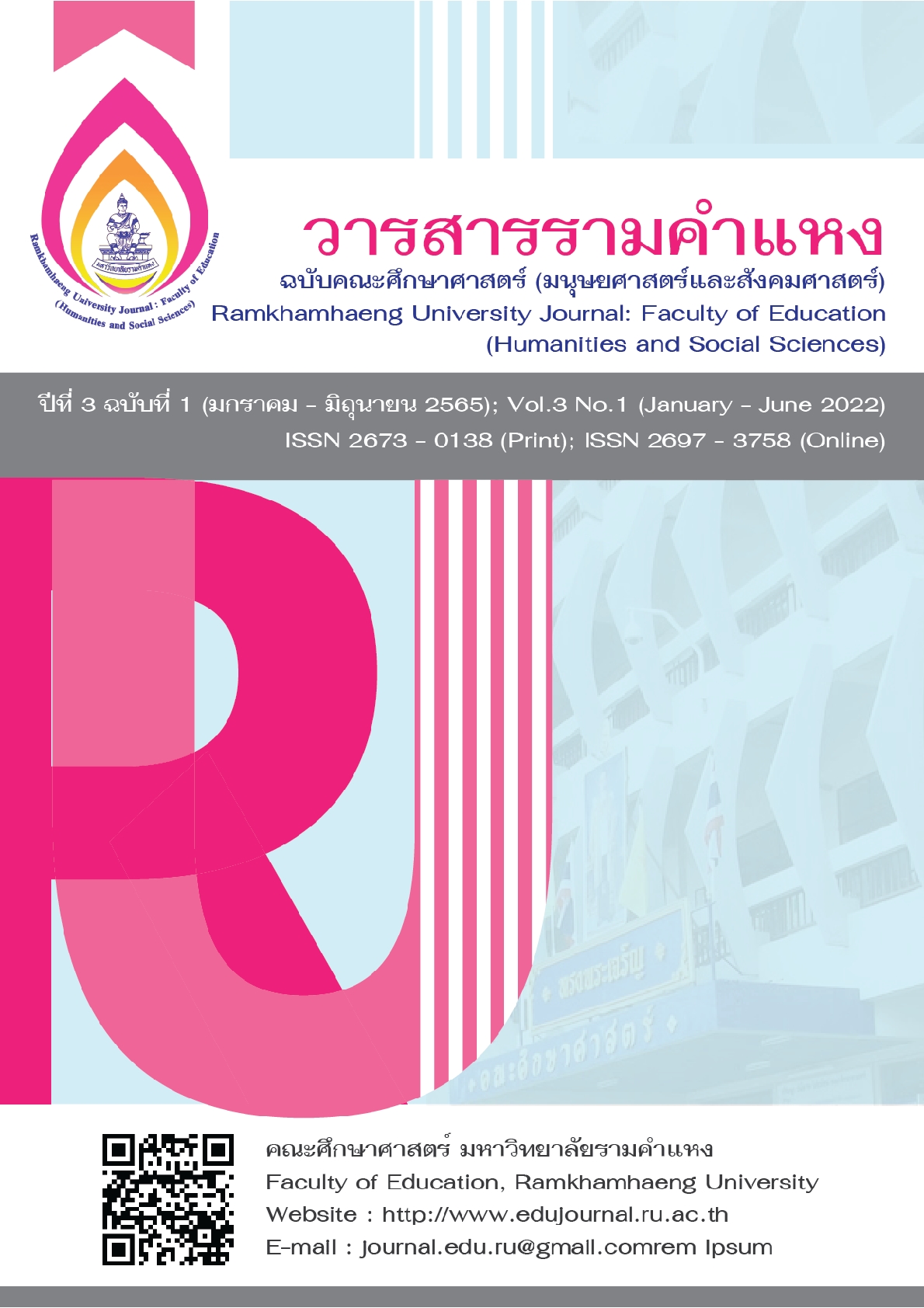The Guidance Administration at the Higher Education to Reduce Student Dropouts During the COVID-19 Situation
Main Article Content
Abstract
The guidance administration in higher education had the important goal of promoting, developing, preventing, and solving various problems among students to reduce dropouts and educational emptiness during the COVID-19 situation. By providing five advising services that address the score, academic, professional, personal, and social issues, it is an essential mechanism that fosters the foundation of students' ability to be strong in coping with emerging problems. The factors that induce students to drop out, as well as the components that are relevant to their thinking, prevention, and problem-solving strategies, must be managed in a systematic manner. The guidance process, which employs a systematic approach to working with various professional systems in educational institutions, as well as the Deming Cycle quality system, are both required in the operation to enable guidance management to create a system for assisting students during the COVID-19 situation. Together, social media is used in the guidance system as a medium for offering advice services for simple and convenient access. However, the planning, executing, monitoring, and improvement procedures, particularly the collaborative networks that come together both internally and externally, are critical to its success. As a result, guidance administration is an important process that facilitates the implementation of advice services in higher education, allowing students to reach their full potential. Focusing on the outcomes that happen to students helps reduce educational emptiness during the COVID-19 situation.
Downloads
Article Details

This work is licensed under a Creative Commons Attribution-NonCommercial-NoDerivatives 4.0 International License.
ผู้ส่งบทความ (และคณะผู้วิจัยทุกคน) ตระหนักและปฎิบัติตามจริยธรรมการวิจัยอย่างเคร่งครัด ทั้งนี้บทความ เนื้อหา ข้อมูล ข้อความ ภาพ ตาราง แผนภาพ แผนผัง หรือข้อคิดเห็นใดๆ ที่ปรากฎในบทความ เป็นความคิดเห็นและความรับผิดชอบของผู้ส่งบทความ กองบรรณาธิการไม่จำเป็นต้องเห็นตามเสมอไป และไม่มีส่วนรับผิดชอบใดๆ โดยถือเป็นความรับผิดของของเจ้าของบทความเพียงผู้เดียว
References
Akpınar, E. (2021). The effect of online learning on tertiary level students mental health during the Covid19 lockdown. The European Journal of Social & Behavioural Sciences, 30(1), 52-56.
Assumption University, Research Institute and Academic Services. (2020). Online learning in the Covid-19 situation. Retrieved July 12, 2021, from https://iras.au.edu/ [In Thai].
Erbsuksiri, A. (2016). Psychology for teachers (3rd ed.). Bangkok: Chulalongkorn University Press. [In Thai].
Jesadakultavee, S. (2020). The future-oriented guidance administration system in school under the secondary education service area office. Journal of Social Science and Buddhistic Anthropology, 5(2), 269-288. [In Thai].
Khamsom, K. (2016). Introduction to guidance. Udon Thani: Udon Thani Rajabhat University Faculty of Education. [In Thai].
Khethoi, S., Thasa, W., & Raisa-nguan, S. (2017). The affecting factors of Khamkaen Nakhorn secondary school students’ drop out: A case study Khamkaen Nakhorn secondary school affiliated with secondary school educational service area office 25, ministry of education. Mahachula Academic Journal, 4(2), 92-101. [In Thai].
Krongkaew, A., Janin, P., Kaithong, N., Punpuch, P., Sangsuwan, C., & Thongkham, K. (2018). Causes of undergraduate student dropout at Kamphaeng Phet Rajabhat. The Golden Teak: Humanity and Social Science Journal, 24(Special), 136-145. [In Thai].
Ministry of Education, Office of the Basic Education Commission. (2016). Guidance system in educational institutions. Bangkok: The Agricultural Cooperative Federation of Thailand. [In Thai].
Onprom, S., & Klomjit, C. (2015). The effect of guidance activites program for development happiness in students. Journal of Education Khon Kaen University (Graduate Studies Research, 9(2), 198-205. [In Thai].
Panatungthirawit, A., Ruangmontri, K., & Namwan, T. (2020). Management of students’ counselling in the division of student affairs in State university. Suthiparithai, 34(110), 14-25. [In Thai].
Phuttha, S. (2557). The effects of using a guidance activities package to develop skills to deal with emotions and stress of higher secondary students at Wanteesathit Phittayakhom school in Phichit provence. Journal of Humanities and Social Science Valaya Alongkoen, 9(3), 23-34. [In Thai].
Research Center for Children and Youth Development. (2020). Survey results of children and youth online learning readiness during the COVID-19 situation. Retrieved January 21, 2021, from http://www.cydcenter.com [In Thai].
Sukseetong, N. (2018). Factors related to the cause of dropout of students department of public health Chiang Mai Rajabhat University: Current student perspectives. Chiang Mai: Chiang Mai Rajabhat University, Faculty of Science and Technology. [In Thai].
Tantichuwet, P. (2018). The study of in-depth characteristics and factors affecting out-of-school children: A case study of Tak province. Suthiparithai, 32(101), 80-91. [In Thai].
The Guidance Association of Thailand. (2016). Guidance system in schools. Bangkok: The Agricultural Cooperative Federation of Thailand. [In Thai].
Vihogato, P. (2018). Principles and guidance system in educational institutions. Nonthaburi: Sukhothai Thammathirat University Printing House. [In Thai].
Wareebor, J., Phibanchan, S., & Thongkhambunchong, S. (2020). Dropout and persistence phenomena of undergraduate students of Burapha university: The causal relationship model. Journal of Graduate School Sakon Nakhon Rajabhat University, 17(78), 20-29. [In Thai].
Yongsorn, C. (2017). Educational waste affects the quaity of graduates of Thai higher education. Journal of education, Faculty of Education, Srinakharinwirot University, 18(1), 1-9. [In Thai].


